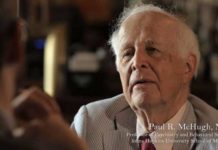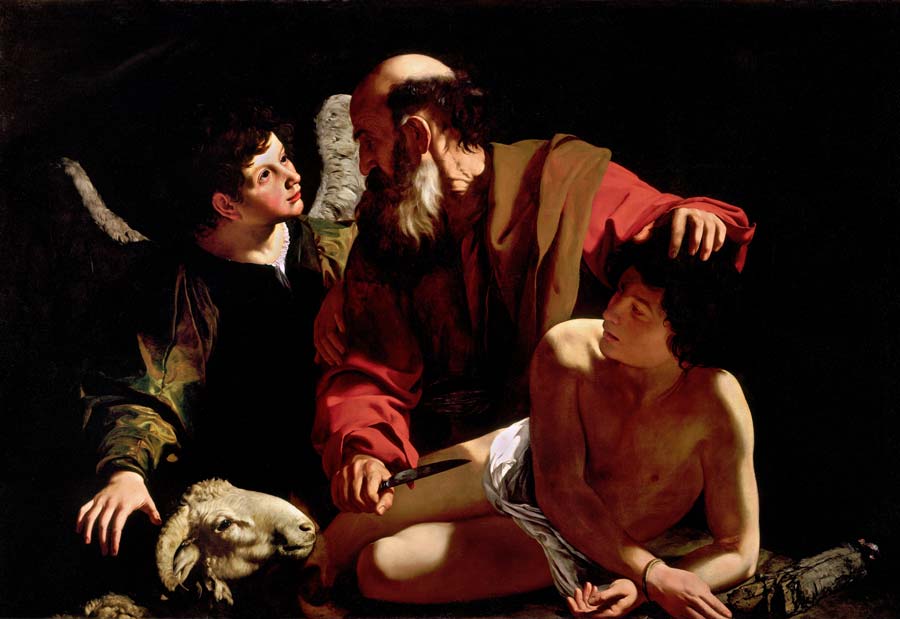Perhaps no story in the Bible has caused more trouble for readers than God asking Abraham for the sacrifice of his son Isaac in Genesis chapter 22. And understandably so, it’s a difficult narrative with profound implications, compounded by the fact that God’s request seems to come out of nowhere. But these events are far less complex than they appear and provide a powerful opportunity to discover the Bible’s ability to explain itself.
The Bible is in fact a single book, telling a single story, spanning an incredible 4000 years of human history, and no one, I repeat no one, should trust any attempt to explain this difficult passage in isolation from the rest of that story. So let’s begin by getting some context from the rest of the Bible.
First, When Moses wrote this story he had already delivered God’s 10 commandments to Israel, one of which plainly states “Thou shalt not kill”. It would make no sense for Moses to include this story if God was tempting Abraham to break this very law. In fact the book of James says.
Let no one say when he is tempted, “I am being tempted by God,” for God cannot be tempted with evil, and he himself tempts no one [with evil].
James 1:13
Second, Genesis 22 begins by telling us that God is going to “test Abraham”. But if God is all-knowing, He already knew what Abraham would do, right? Then why test him? First Peter chapter 1 gives us a clue.
“the testing of the genuineness of our faith is more precious than gold because it results in praise and glory and honor at the revelation of Jesus Christ.”
1 Peter 1:7
So when God presents a test, the outcome is not to reveal something to Him, but for the benefit of, and to reveal something to, the one undergoing the test.
Third, and most importantly, Jesus himself makes a startling, and yet often overlooked, statement about the sacrifice of Isaac in the book of John.
“Your father Abraham rejoiced [desired] to see my day, and he saw it and was glad.
John 8:56
Clearly no one understood what Jesus was getting at, because while He was speaking, the surrounding crowd attempts to kill Him. But Jesus’ statement here provides the key to unlocking the story of Abraham and Isaac.
We know Abraham had a special relationship with God, the book of James says
“Abraham believed God, and God counted him as righteous because of his faith. He was even called the friend of God.”
James 2:23
Such a friend was he, Genesis 18 even tells us they spoke face to face when God came to have a meal with him, discuss Sodom’s impending destruction, and personally deliver the news that he would yet have a son.
So when when Jesus says “Abraham desired to see His day”, incredibly, He’s not only saying that he spoke to Abraham in times past, but that Abraham communicated something to Him that’s not recorded in the Old Testament. A conversation where Abraham must have said something like
“Lord, when will you redeem this fallen world, how will you do it? I so DESIRE to see that day, and understand what it is You are going to do!”
And when this friend of God asked to see the Messiah’s Day, and to understand God’s plan, incredibly, amazingly, Jesus tells us that God obliged, and that Abraham indeed SAW IT AND WAS GLAD!
But how did he see it? To find out, we’ll need to take another look at the amazing details behind Abraham’s sacrifice of Isaac.
Key Details in The Story of Abraham and Isaac
- Isaac is called Abraham’s only son by God (22:2), even though we know he had another son Ishmael whom he sends away.
- Isaac was to be sacrificed in the “region of Moriah” on a mountain that God would point out. (22.2)
- The events surrounding the sacrifice of Isaac occurr over a period of 3 days (22:4)
- Isaac submits to his father’s apparent will (22:9-11)
- God promises that because Abraham was willing to give up his only son, all the nations of the earth would be blessed through him. (22:18)
Now Consider The Striking Comparison With Jesus’ Story
- Jesus is called God’s “only begotten Son” (Jn 3:16)
- Jesus’ suffering and crucifixion all happened within walking distance of the Temple mount which according to 2 Chronicles 3:1 was built on a mountain in the region of Moriah.
- The events from the time of Jesus’ arrest until His resurrection occur over a period of 3 days (Matthew 12:40).
- Jesus asks for the “cup to be taken away from Him” but ends by saying “yet not My will, but Your will be done” to The Father (Luke 22:42).
- Jesus is “… the Savior of all people, and especially of those who believe.” (1 Tim 4:10)
I’m certain you caught the similarities, they are unmistakable! And they demonstrate what Jesus must have meant when he says that Abraham “desired to see His day”. Clearly, the events of Genesis chapter 22 are set up by Abraham’s desire, or apparent request, to see the Messiah’s day. Since Jesus’ coming was still far off, God honors Abraham’s request by doing the next best thing to being there, He re-creates the events in a way that Abraham would be able to understand. God immerses Abraham into the very story of the Messiah, even putting him in a position to understand the very experience of God the Father.
In doing so, God indeed “tested” Abraham, in that he tested just how badly he really desired to “see” and understand what his friend God was going to do. And in completing this test not only did Abraham come to see the Messiah’s day, and be glad for it, but he also left behind one of the most compelling pictures in scripture of both God’s plan of redemption and His great great love and sacrifice on our behalf.
The only thing missing from the Biblical record is this conversation between God and Abraham, and because the story of the Bible IS the story of Jesus, the events surrounding Abraham’s sacrifice had remained shrouded in mystery and misunderstanding until Jesus came as Messiah and revealed the request made by His friend Abraham nearly 2000 years before.
And so, the seemingly complex story which Moses began, finds it’s beautiful ending in the pages of John’s Gospel completing one of the greatest stories ever told, and granting us an even greater depth of understanding into the greater story that the Bible is trying to tell.











